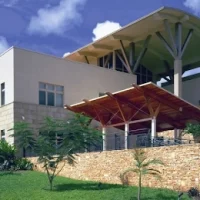Sudan’s long history has been riddled with internal conflict. The United Kingdom and Egypt controlled Sudan for the first half of the twentieth century, then agreed to cede it self-government in 1953. In December 1955, the premier of Sudan declared unilateral independence. The newly independent Republic swiftly fell into a pattern of civil wars, coups… Read More "You Know a Coup is Coming but No One will Listen: Sudan 1964"
On April 6, 1994, the presidents of Rwanda and Burundi were assassinated when their plane was shot down near Kigali airport and crashed into the grounds of the Rwandan presidential residence. The incident ignited genocide by the majority Hutus against Tutsis and against those supporting peace negotiations to bring Rwanda out of civil war. An… Read More "Fleeing Rwanda to Survive, then Returning to Rebuild, 1994"
Between Iraq and a Hard Place: Declared Persona Non Grata by Saddam
Iraq expelled an American diplomat stationed in Baghdad on November 17, 1988 for having contacts with Iraq’s Kurdish minority. Haywood Rankin, head of the American Embassy’s political section, was forced to leave the country after he and a British diplomat returned to Baghdad from a trip to Kurdistan that had been approved by Iraqi authorities.… Read More "Between Iraq and a Hard Place: Declared Persona Non Grata by Saddam"
Mission Unspeakable: When North Koreans Tried to Kill the President of South Korea
On October 9, 1983, while South Korean President Chun Doo-Hwan was on a visit to Rangoon, Burma to lay a wreath at the Martyr’s Mausoleum of Swedagon Pagoda, a bomb concealed in the roof exploded, killing 21 people including four senior South Korean officials. President Chun was spared because his car had been delayed in… Read More "Mission Unspeakable: When North Koreans Tried to Kill the President of South Korea"
Crisis Management: Occupation of USIS in South Korea, 1985
On May 25, 1985, seventy-three South Korean students barged into the United States Information Services (USIS) library in Seoul and began a three-day occupation. The students’ primary demand was an apology from the U.S. Ambassador, Richard L. “Dixie” Walker, as the representative of the American government, for the United States’ alleged role and complicity in… Read More "Crisis Management: Occupation of USIS in South Korea, 1985"
Drogas y Derechos Humanos: Changing U.S. Policy towards Guatemala
In June 1954 the U.S. Central Intelligence Agency, concerned about the threat of communism in Guatemala, assisted in the overthrow of the government led by President Jacobo Arbenz Guzmán. A five-member junta assumed power. Following communications with Guatemala’s Foreign Ministry and consultations with countries in Central America, the U.S. determined that the new Guatemalan government… Read More "Drogas y Derechos Humanos: Changing U.S. Policy towards Guatemala"
Rooted in the Good Earth: White, Protestant “China Brats” in the Foreign Service
A confluence of two rising movements in the early 1800s, Western outreach to China and reinvigorated Christian evangelism, led to a surge in missionaries going to China from the U.S., the UK and Europe. The Protestant and Catholic missionaries were initially restricted to living in an area now known as Guangzhou and Macau. They were… Read More "Rooted in the Good Earth: White, Protestant “China Brats” in the Foreign Service"
Diplomacy in Cold Blood: Fatal Encounters Around the World
An American citizen abroad accused of murder: this is a particular nightmare for consular officers. These cases can become public scandals and political quandaries, and it is the job of American Citizen Services to ensure that Americans accused of major crimes beyond U.S. borders receive appropriate treatment in accordance with international law. If an arrested… Read More "Diplomacy in Cold Blood: Fatal Encounters Around the World"
Haiti has long been plagued by coups d’état and regime changes, leading to long-time political instability and weak governance. In this volatile political field, it was easy for a Haitian leader to assume dictatorial powers, as was the case with President François Duvalier, also known as “Papa Doc.” After becoming the President of Haiti in… Read More "The Overthrow of Haiti’s Aristide"
Kimberley Process: Commercial Diplomacy to Stem the Flow of Blood Diamonds
During the 1990s, several African countries, namely Angola, Cote d’Ivoire, the Democratic Republic of the Congo, Sierra Leone, and Liberia were plunged into chaos and embroiled in devastating civil wars. Thanks to economic and political insecurity and contentious inter-ethnic relations, rebel groups such as the Patriotic National Front of Liberia under the leadership of Guy… Read More "Kimberley Process: Commercial Diplomacy to Stem the Flow of Blood Diamonds"


